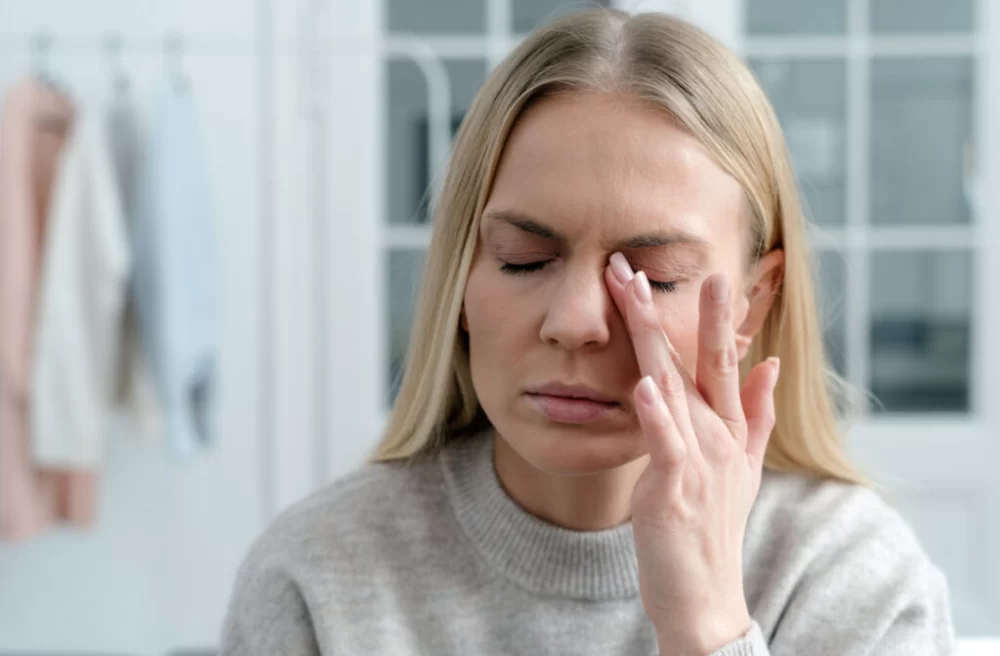
What Is Dry Eye Syndrome?
Dry Eye Syndrome is a condition where your eyes don’t produce enough tears, or the tears evaporate too quickly. As someone who has personally dealt with this issue for several years, I can tell you that it’s not just about dry eyes. It’s much more than that. Imagine trying to focus on work or enjoy your favorite TV show while feeling a constant irritation in your eyes. That’s what living with Dry Eye Syndrome feels like. The discomfort can range from mild to severe, and it can affect your daily life in ways you never expected.
The Frustrating Symptoms of Dry Eyes
The symptoms of dry eyes can vary from person to person, but common signs include:
- Persistent Dryness: This is the hallmark symptom. You might feel like your eyes are parched, even after blinking.
- Itching or Burning Sensation: This one is especially annoying and makes it hard to concentrate.
- Redness: The whites of your eyes may appear bloodshot or inflamed, which is not just uncomfortable but also a cosmetic issue for many.
- Blurred Vision: Some people experience blurred or fluctuating vision, especially after reading or using digital devices for extended periods.
- Heavy Sensitivity to Light: Light sensitivity is another common symptom. I’ve found that it’s especially noticeable when walking outdoors or being in brightly lit rooms.
- Feeling of Grit or Foreign Object in the Eye: This sensation often makes it feel as though something is stuck in your eye, even when it’s not.
What Causes Dry Eye Syndrome?
In my experience, the causes of dry eye syndrome are varied, and understanding these can help in finding the right treatment. Here are some of the most common factors:
- Aging: As we get older, our tear production naturally decreases. This is particularly common in people over 50.
- Environmental Factors: Wind, dry air, or smoke can all contribute to dry eyes. I live in a city where the air tends to be dry, and I’ve noticed that my symptoms flare up during the winter months.
- Medications: Certain medications, such as antihistamines, antidepressants, and blood pressure drugs, can reduce tear production.
- Health Conditions: Conditions like rheumatoid arthritis, diabetes, or thyroid issues are often linked with dry eye syndrome.
- Screen Time: As someone who spends long hours in front of a computer, I can vouch for how this increases the chances of developing dry eyes. Extended screen time reduces the frequency of blinking, which means less tear production and more dryness.
Real-Life Experiences: How Dry Eye Affects Me
Let me share a little story. A few years ago, I had to attend an important business meeting. I had been experiencing some dry eye symptoms for a while, but that day, my eyes were so dry, it felt like they were burning. As I sat in the meeting, I could barely focus on the conversation. Every time I blinked, it felt like sandpaper rubbing against my eyeball. That’s when I knew it was time to take action.
My dry eye condition wasn’t just an annoyance—it was impacting my career, my social life, and even my mood. I couldn’t go to the movies without feeling miserable, and I found myself avoiding outdoor activities because of my heightened sensitivity to light.
How I Learned to Manage Dry Eye Syndrome
Managing dry eyes is an ongoing process, but I’ve learned a few strategies that help me cope with the symptoms:
- Hydration: Drinking plenty of water helps keep your body and eyes hydrated. I also started using a humidifier in my home to add moisture to the air.
- Eye Drops: I’ve tried several over-the-counter eye drops, and some have really helped me get through the day. They’re great for a quick relief, especially when the dryness becomes unbearable.
- Breaks from Screens: One of the best pieces of advice I got was to follow the 20-20-20 rule—every 20 minutes, take a 20-second break, and look at something 20 feet away. It gives your eyes a chance to rest and blink more often.
- Prescription Treatments: In some cases, over-the-counter solutions don’t do the trick, and you might need something stronger. I visited my doctor, who prescribed me some medications that helped with inflammation and tear production.
- Dietary Changes: I’ve added more omega-3 fatty acids to my diet, as they are known to help with eye health. Flaxseeds and fish are part of my regular meals now.
Can You Prevent Dry Eye Syndrome?
While some causes of dry eye are unavoidable, there are things you can do to minimize your risk or reduce the severity of the symptoms:
- Take Regular Breaks: As someone who spends a lot of time on screens, I can’t stress enough how important it is to take regular breaks. This not only helps with eye strain but also prevents your eyes from drying out.
- Wear Sunglasses: When I go outside, I make sure to wear sunglasses to protect my eyes from the wind and dry air. This also helps with light sensitivity.
- Stay Hydrated: Maintaining overall hydration will also benefit your eyes. I always carry a water bottle with me, especially during dry seasons.
- Proper Humidity Levels: Using a humidifier during winter helps keep the air moist and prevents my eyes from drying out. It’s a small change, but it makes a huge difference.








